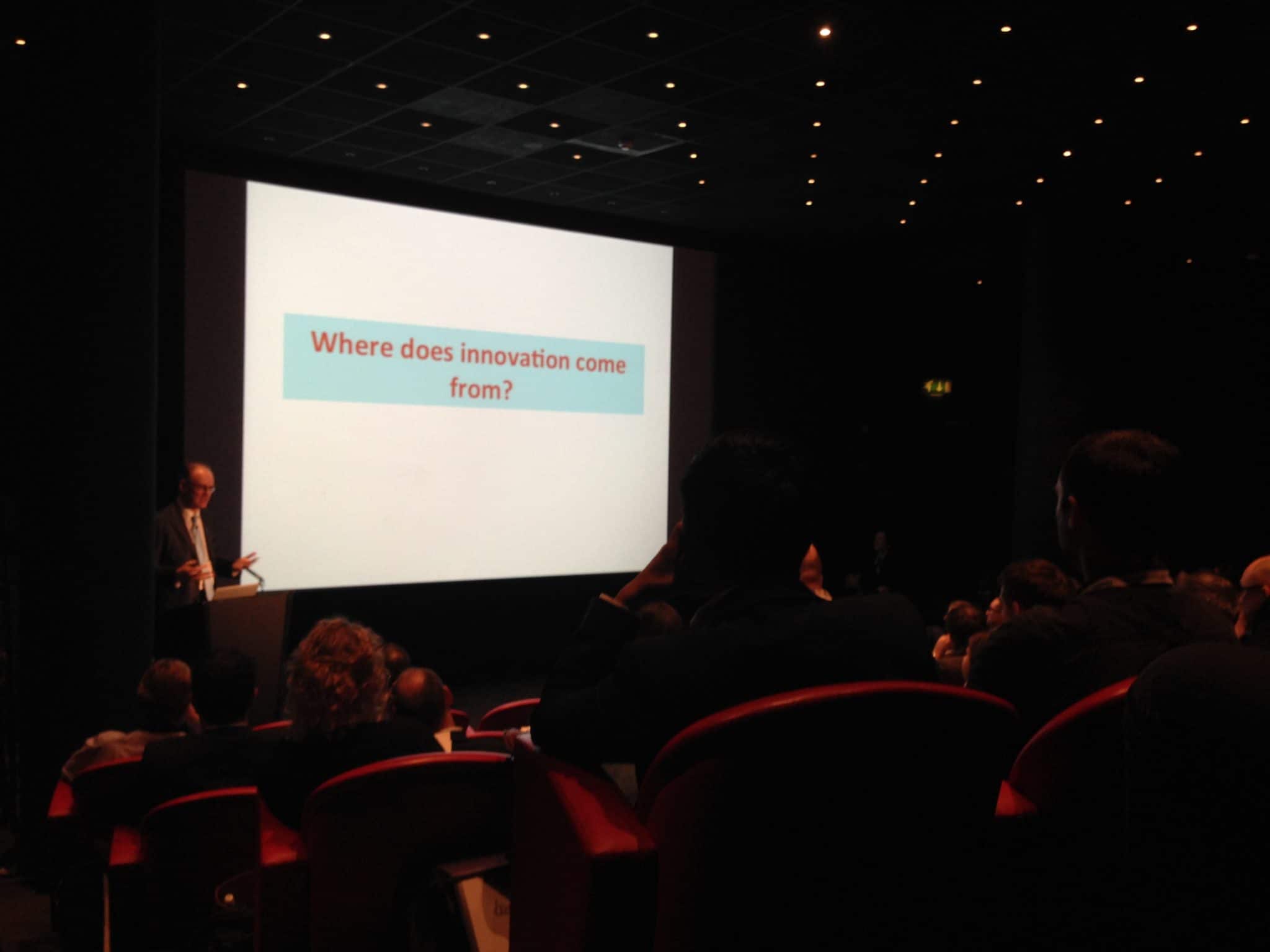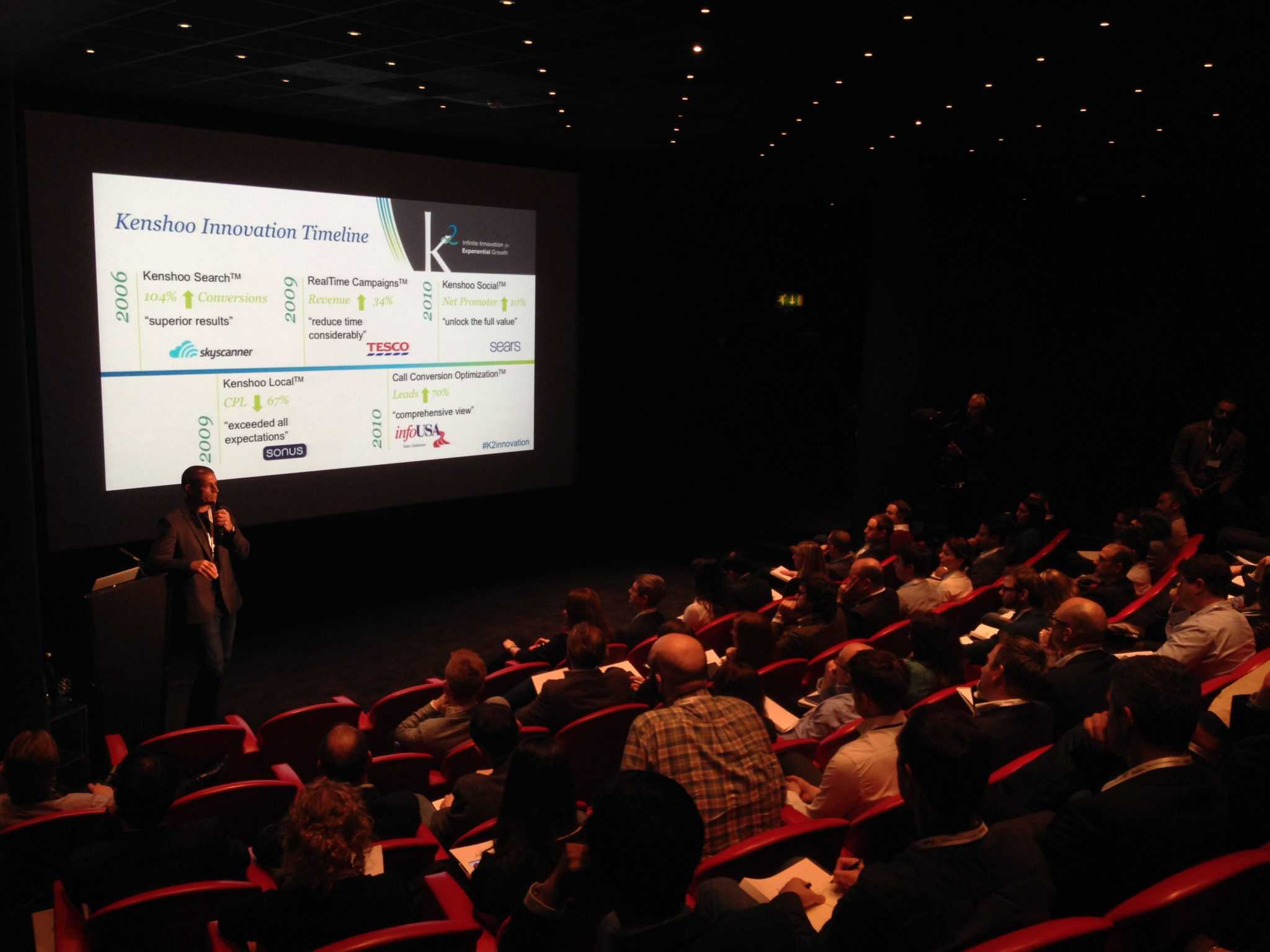Today we’re featuring a guest post from Uday Radia, founder of CloudNine PR in the UK. As a partner of Skai, Uday attended K² London last week and shared his takeaways from this day of innovation.
You can’t underestimate the importance of the ‘collective IQ’ in driving innovation. That was one of the key takeaways from Skai’s inaugural K² London event, a one day forum which brought together over 100 leading advertisers and agencies from across Europe to celebrate and debate innovation in digital marketing.
The event took place on April 2nd and featured a fascinating keynote from Lord Matt Ridley, author of The Rational Optimist and acclaimed TED speaker.

In his speech, Lord Ridley (pictured above) emphasized that it is not necessarily highly intelligent individuals that make for excellence in innovation, but facilitating the exchange of ideas and experiences between large numbers of people. In other words, it’s not the individual IQ but the collective IQ that really counts.
This is why primitive communities that have survived in isolation show very little evidence of innovation for hundreds of years when compared with more open societies who are exposed to the outside world.
Importantly, if idea swapping takes place between people from radically different backgrounds, it can be even more powerful, sparking some truly surprising innovations. Lord Ridley quoted the invention of a camera pill that can be swallowed in order to take images of a patient’s digestive system – which came out of a conversation between a gastroenterologist and a guided missile scientist.
Just as significant according to Lord Ridley, is the way in which small changes and trial and error play a role in successful innovations, which he likens to the theory of evolution in which small mutations shape the way a species evolves depending on whether they help it thrive.
In one way or another, these two key themes were actually touched on through the course of the day by many of the other speakers as they talked about how they support digital marketing innovation within their own organisations.
So, for example, Craig Lister from Reprise Media talked about creating a culture of innovation in his company by helping all team members feel empowered and confident enough to share their thoughts, even if they are challenging the status quo; Sanjit Atwal from Squawka discussed the importance of receiving 24/7 feedback through Twitter to help support the innovation process and gradually iterate and evolve the company’s services; Tor Crockatt from Microsoft Advertising shared examples of new ad formats across the Yahoo! Bing Network that pull from various databases and connect the cross-screen experience in a bespoke way for each individual consumer; and Skai CEO, Yoav Izhar-Prato (pictured below), discussed our own ecosystem in which everyone is encouraged to plug in ideas and the important role that client conversations and feedback play in innovation within the company.

Returning to Lord Ridley’s keynote, the really positive message was his belief that the pace of innovation in the world will only accelerate in the 21st century, with high speed fibre optic communications and the world wide web enabling instantaneous ideas exchange between unprecedented numbers of people living millions of miles apart. So here’s to lots more innovation via the global collective IQ!
